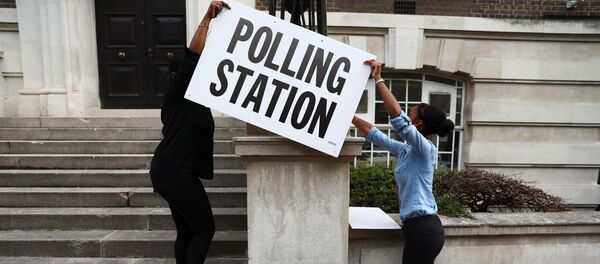French citizens, who are 18 years old before the first round of the elections, registered voters who have not been barred from exercising their political and civic duties, are entitled to vote. Foreign nationals, including residents of the European Union and other countries, are not entitled to cast ballot.
French citizens, aged 18 and above, having the right to vote and having served in the French armed forces, can be elected to the parliament.
According to France's electoral code, certain officials, including city mayors and president of the Assembly of French Citizens Abroad, cannot carry out their duties simultaneously being a member of parliament.
Every candidate in parliamentary elections runs with a substitute, who would take his or her seat in the National Assembly if the candidate vacated it for various reasons such as taking a ministerial or any other office incompatible with serving in the National Assembly, death or other causes.
In France, there is no centralized system of permanent election bodies. On the national level, the election is organized by the Constitutional Council, which provides general oversight, and the Interior Ministry. The latter is responsible for organizational and legal regulations, collection of votes and announcement of results to the public and the media. The Ministry’s overseas department serves French residents abroad.
A number of commissions, including the Commission for the Control of the Voting, the Commission for the Control of the Election Campaign, the National Commission for the Campaign Auditing and the Superior Council of the Audiovisual provide oversight in their relevant areas. At lower levels, magistrates and local authorities such as mayors and town hall officials take part in the organization of elections.
Lawmakers are elected by a plurality voting system of absolute majority in single-member constituencies. France is divided into 577 constituencies, each populated by the average of 125,000 people. The constituencies are divided in the following manner: 539 of them represent Metropolitan France, 19 — overseas departments, eight — overseas communities, and 11 represent French residents overseas.
Parliamentary elections are held on Sundays and certain categories of French citizens, including those with disability, are entitled to vote by proxy.
French lawmakers are elected in two rounds. To win in the first round, the candidate must obtain an absolute majority, but no less than 25 percent of the votes of all voters registered in the constituency.
If no single candidate wins an absolute majority, the second round is held in a week later. Candidates, who have received at least 12.5 percent of the ballots cast by registered voters, advance to the second round. To win in the second round, a candidate must obtain a relative majority. In case of a tie, the older candidate wins.





